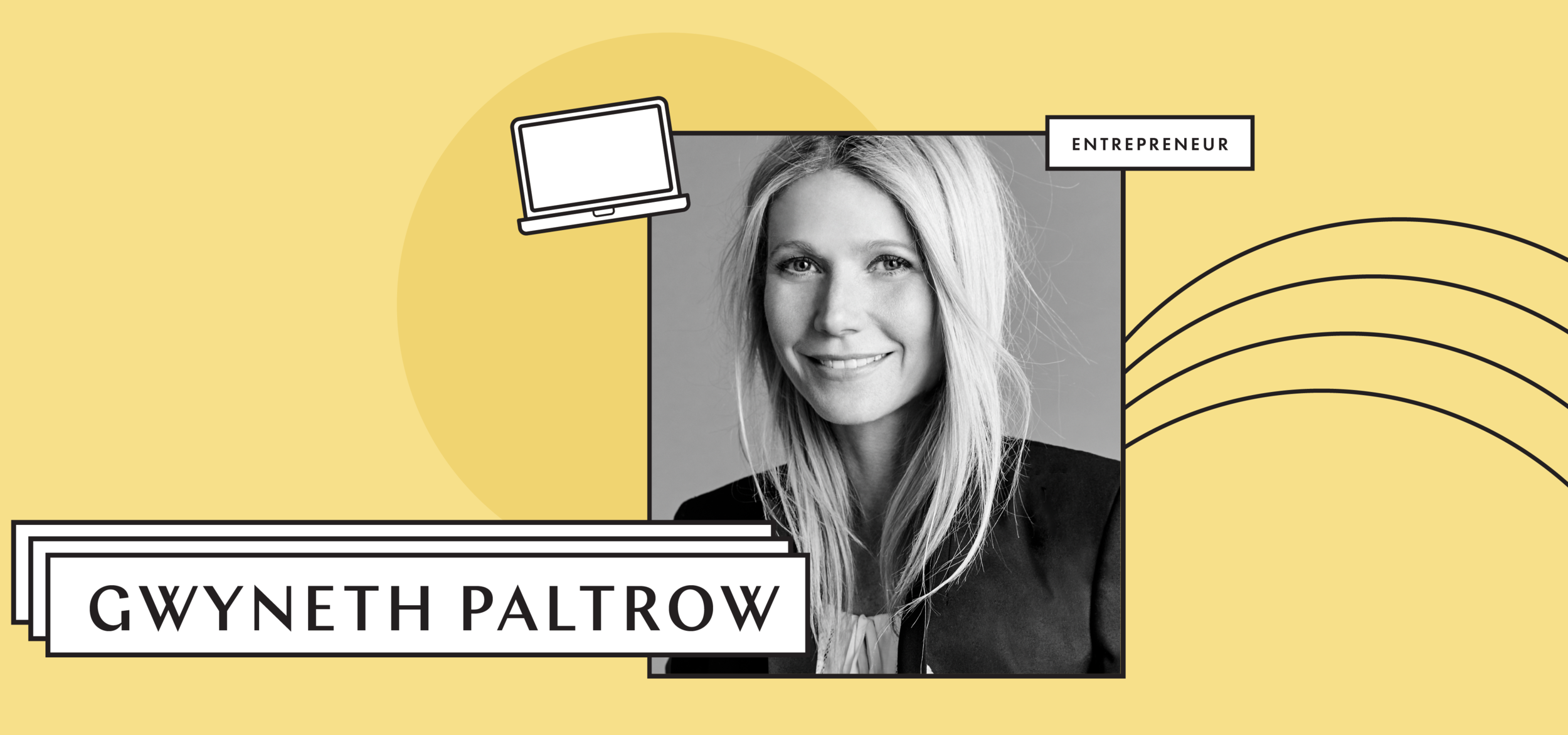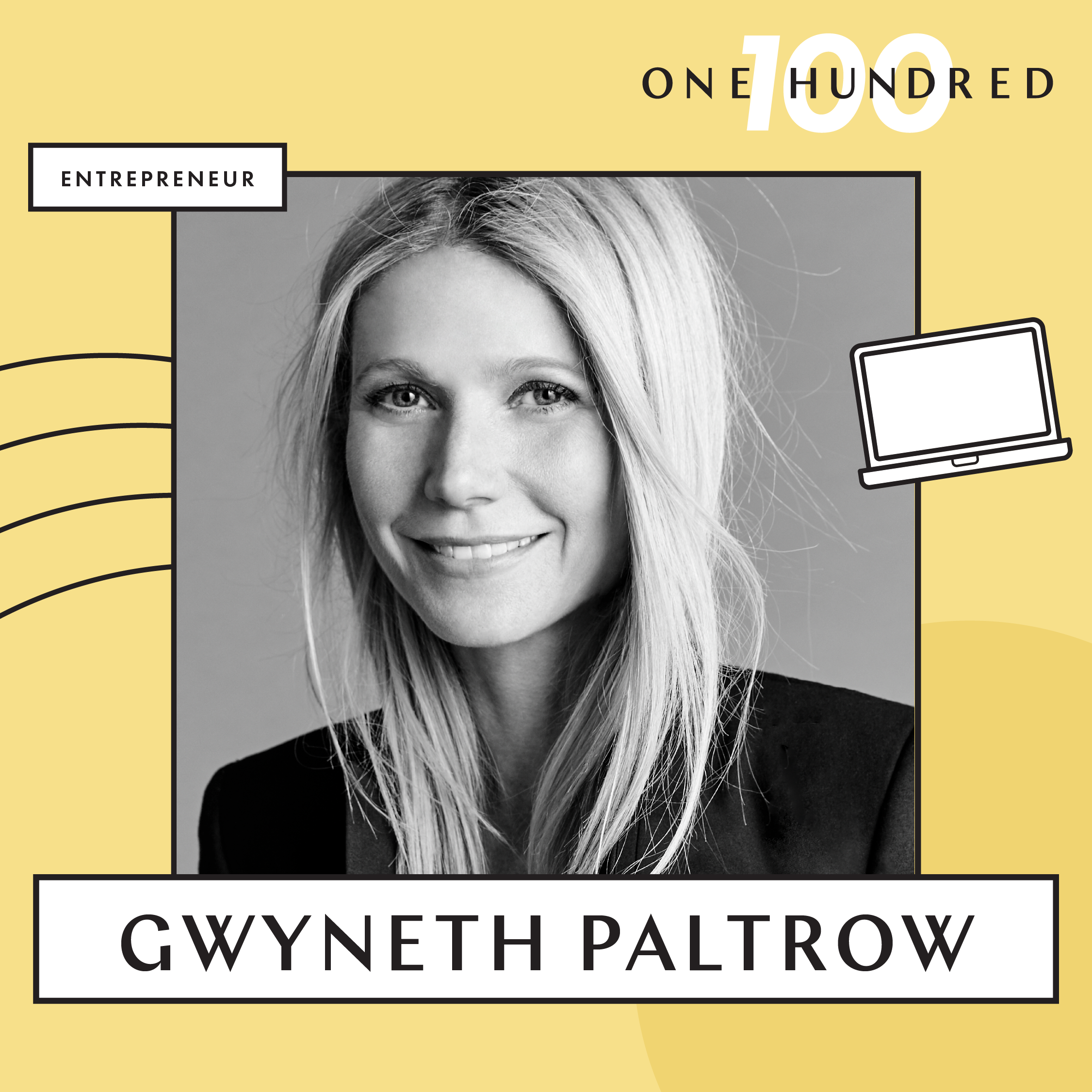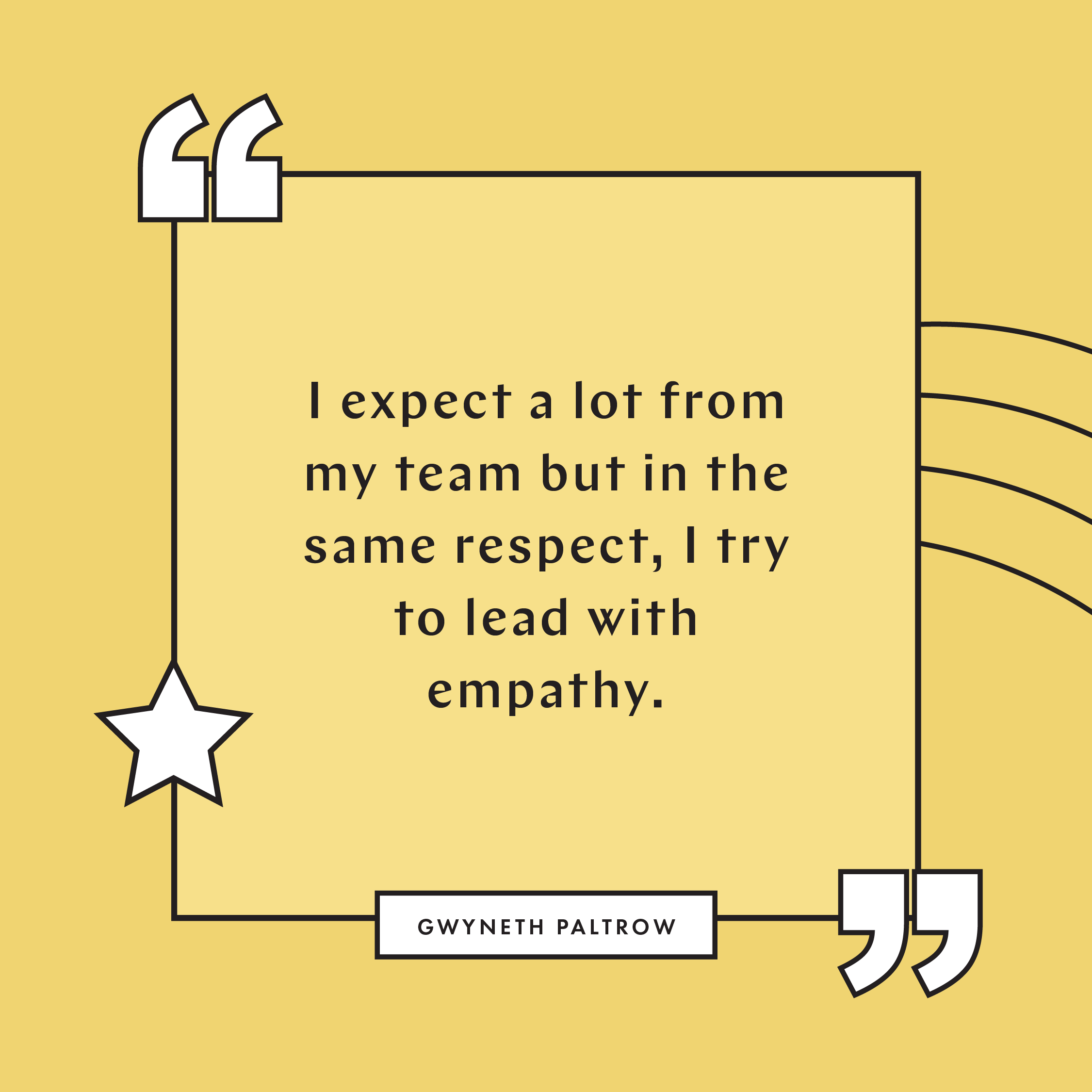Create & Cultivate 100: Entrepreneur: Gwyneth Paltrow
“Never give up.”
We talk a lot about career leaps at Create & Cultivate and if there’s one person who has perfected the art of the pivot, it’s Gwyneth Paltrow. From Pepper Pots in the Iron Man franchise to the icy beautiful Estella in Great Expectations (and who else was glued to Paltrow’s Georgina Hobart in The Netflix’s hit show The Politician last year?), the esteemed actor has enjoyed a very successful career with numerous industry accolades (including an Academy Award) for her work but perhaps her biggest achievement is becoming an entrepreneur.
In 2008, Paltrow embarked on her second life by launching a humble newsletter from her kitchen called goop—yeah, you might have heard of it! Since then, she has successfully transformed that email into the multifaceted content, e-commerce, and experiential lifestyle platform it is today—and we hear it’s worth a cool $250 million. Now, that’s a boss we want to emulate.
Keep reading to hear from Paltrow on why she believes goop has struck such a chord with readers, the lessons she’s learned as CEO, and the three traits you need to be a successful entrepreneur.
CREATE & CULTIVATE: You launched goop in 2008 out of your kitchen as a weekly newsletter and now it's a go-to destination for millions of people around the world for information for health/wellness but also as trusted e-commerce for clean products from home to beauty. What do you attribute to that success? Why do you think it has resonated so much with audiences? How do you feel about the growth and its success? What are your hopes for the brand?
GWYNETH PALTROW: A lot of the success is rooted in the authenticity of what we were trying to create. I was passionate about wellness and food and great product, but I didn’t think I had the authority to run a business. We were content only for a very long time, and out of that content came a need, determined by our readers, to curate incredible products to go along with our stories. We started very slowly, with one-off collaborations with brands we loved, which always sold out right away.
Once we'd built a strong multi-brand assortment, we realized that we had the authority and the white space to create our own efficacious, well-made products. But it was all very organic, and it took a long time. We started the business in 2008 and we didn't fully realize the business model until much later, starting in 2015 when we took venture money.
While we're firmly rooted in contextual commerce, the model is still evolving. We didn’t know that experiential would be such a huge driver of the business. Over 57% of our brand partnership deals have an experiential element. From a consumer standpoint, we're becoming almost as well known for our experiential activations, such as our In goop Health summits, live podcasts and retail stores, as our core businesses.
“I’m a perfectionist, and I can be very demanding of myself, which is something I’m trying to work on personally.”
You began your career as an actor and made the pivot to become the CEO of goop—How would you describe your leadership style? What kind of boss are you? What have you learned about yourself and about being a leader through this process?
I'm a perfectionist, and I can be very demanding of myself, which is something I'm trying to work on personally. I expect a lot from my team but in the same respect, I try to lead with empathy. I want my team to feel that they have autonomy and to cultivate an environment where people can take risks, be collaborative and not feel paralyzed by the fear of failure.
As we scale, we're less like the little family we were for the first iteration of the company, but it's crucial to me that we sustain our values. It's not a top-down thing; everyone in the company needs to feel responsible for the culture we create.
In your opinion, what are the top three traits of a successful entrepreneur?
Self-belief, the willingness to be vulnerable and ask questions and to hire people who are smarter than you are.
What is the best advice you’ve received?
Never give up.
What is the #1 book you always recommend?
Dream Work by Mary Oliver.
VIEW THE FULL CREATE & CULTIVATE 100 ENTREPRENEUR LIST HERE.
How This LA Business Owner Tries to Live a Zero Waste Life
Waste not, want not.
We’re making zero waste toothpaste in the kitchen of Meryl Pritchard of Kore Kitchen. She’s using an olive wood spoon made from branches; no trees were cut down in the name of the spoon. She uses aloe instead of Bandaids. Her water jug is filled with spring water a friend delivers. Even her TP is made with wheat straw and requires no deforestation.
“Why would we cut down trees so we can wipe our butts?” she asks me as she mixes the concoction of coconut oil, baking soda, turmeric, peppermint, and cinnamon. She scoops it into a glass jar for me to take home.
“The turmeric makes the toothbrush orange,” she tells me, “so don’t get weirded out.”
What’s weird is how little I know about recycling; a blue bin is hardly a perfect solution. “Less than 10 percent of plastic that gets thrown in blue bins is recycled,” she explains. The reasons for this are multifold: people don't sort, rinse, or really know what can and cannot be recycled.
[Unfun fact: In Los Angeles alone nearly 10 tons of plastic fragments-- think parts of plastic bags, straws, and soda bottles-- are carried into the Pacific Ocean, every day.]
Meryl hasn’t always been about that zero waste lifestyle. For a minute she was about that life. In her early twenties she was working for a well-known Hollywood celebrity stylist. “We’d spend days picking dresses, fitting these beautiful women, and then they’d get torn to pieces in the press.” It made her feel terrible about herself and her body. “At the end of the day,” she tells me, “I’d think, if people are saying this gorgeous woman looks terrible, how am I supposed to feel about myself?” It lead her down a dark road rife with body image issues: “I was trying every fad diet out there, not eating,” she says. “Feeling bad in your own skin is the single worst feeling.”
[Define it: Zero Waste is a philosophy that encourages the redesign of resource life cycles so that all products are reused. No trash is sent to landfills or incinerators.]
“Feeling bad in your own skin is the single worst feeling."
Tweet this.
“This is my trash from the past three months!” she exclaims. "I’ll keep it and I’ll analyze it. I like to keep it because then I can go through it and find a solution.We don’t have a relationship to trash. People just don’t know where it’s going-- someone picks it up, takes it away, so how are you supposed to care when you don’t see it?”
But then she came across a book, “The Kind Diet,” by Alicia Silverstone. Meryl says she had so many ah-ha moments while reading, from coming to understand aspects of the food industry to what she was putting in her body, she knew it was time for a change. She emailed “every single holistic nutritionist in LA who had a website and seemed legit,” and was surprised when they all responded nicely. “I was so used to dealing with people not getting back to me or being nice,” she says in reference to her styling career, “that the energy immediately felt different and promising.”
She began working with a holistic nutritionist who let her sit in on all client sessions. “That’s when I saw healing first hand. I watched as people would cancel surgeries doctors told them were 100% necessary, and they’d go on to live life healthy.” With a little experience and a lot of enthusiasm she went back to school at 23. What she says is a “great age to make a shift.”
She attended The Institute for Integrative Nutrition, which teaches over 100 different dietary theories. As she was learning them, she’d try them. “You are the best doctor you can have— you live in your body, you feed it, you feel what doesn’t work.” The hitch was that Meryl had no idea how to cook. “I would go on Google or talk to Siri and ask really basic things like, ‘Siri, how do I cook a chicken breast?’ But it taught me that I can do anything. If you want to, you can figure it out.”
Kore Kitchen evolved naturally from this mindset. Kore is a “curated and nutritionally designed, meal delivery service and cleanse offering based in Los Angeles.” The intention is to help clients adapt a healthier lifestyle through simple nutritional philosophies: eat whole, organic foods, that are local and sustainably sourced.
There's no packaging in her pantry. She fills reusable glass jars with foods from the bulk bins.
With these Kore values in mind she began cooking for friends and delivering meals. “It would take me forever.” she says. “What would take a chef 20 minutes would take me 3 hours, but with food you’re transferring energy into the meals.”
“I was planning the menu, doing the shopping, the cooking, the delivery, and right after I finished I’d get up and do it all over again.”
She had a few clients during this time, but it was when friends and clients Donovan and Libby Leitch recommended her to Gwyneth Paltrow, the business took an unexpected turn. “I delivered her meals and heard nothing for a few months,” she says. Until Goop’s food editor reached out in December 2014, saying they loved her recipes and would she contribute a few to the site. She shared some recipes for Goop’s 2015 Detox Guide and the email floodgates opened.
“It was just me with one pan, in this kitchen, and I had all these orders.” She hunkered down, found a chef, Anna Lagura, whom she met through a happenstance convo with her neighbors across the hall, and signed a lease for a commercial kitchen space. Anna and Meryl now work out of L.A. Prep.
Of Anna, Meryl says, “She’s the person I’m most inspired by. I can send her a photo of any dish and she can make it with our philosophy. And she knows all of the clients and their food preferences by name and memory.” The meals Kore offers are organic and made from local ingredients whenever possible. They use no processed foods, no additives, no antibiotics or hormones, no preservatives, and no refined cooking oils or refined sugars. They are 100% gluten-free and dairy-free.
The business has been running for about a year and a half, and Meryl acknowledges the difficulties of being a self-funded, small business, but insists that she prefers it this way. "No funding required us to be more creative with our marketing," she says, adding "and I think we have a stronger connection to our clients."
“It’s difficult, but it’s also really fun. Business is like life, there shouldn’t be an end goal— you should be learning and growing all the time.”
"Business is like life, there shouldn’t be an end goal— you should be learning and growing all the time.”
Tweet this.
Growth for Kore however, does not include meal delivery services outside of Los Angeles. It is important to Meryl that they stick to their values of staying local. “We’re not a corporation, we’re a small business.”
“I don’t want to grow outside of LA. Local is really important to me because of the carbon footprint. With other meal delivery programs, you have to wonder, why are you in California eating food from North Carolina?”
It’s also why they have partnered with LA Compost, a local compost with four hubs, one of which is five minus from the commercial kitchen space. “All of the food that you’re eating, the scraps are going directly to the compost. Not trucked out of the city and brought back to be sold as soil.” They also now have a plot at the Elysian Valley Community Garden where Meryl is trying out her green thumb.
“We’re not trying to feed everybody,” she says, “we’re trying to feed our community.”
Click through the below gallery to see more of Meryl's zero waste lifestyle and see our toothpaste!
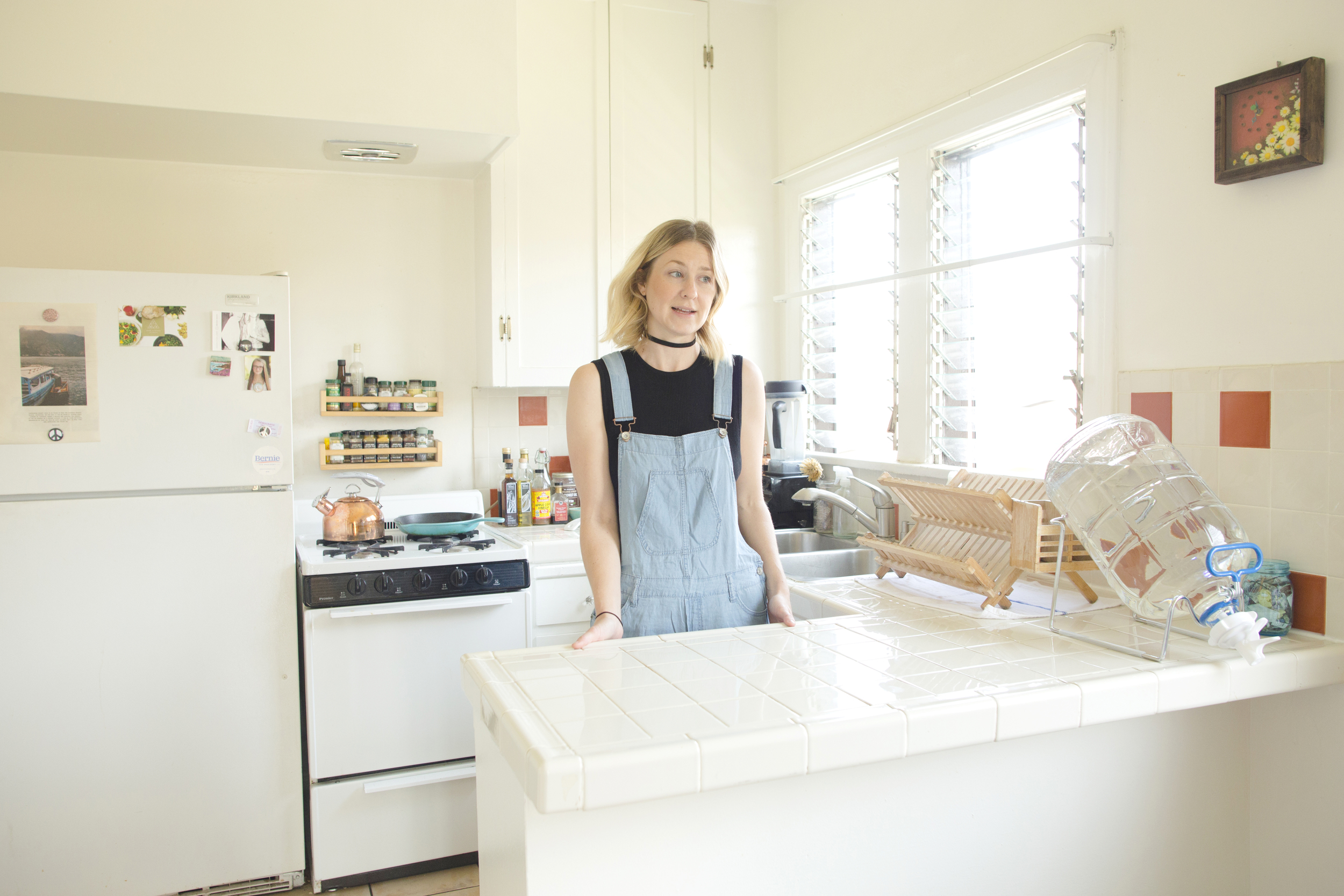
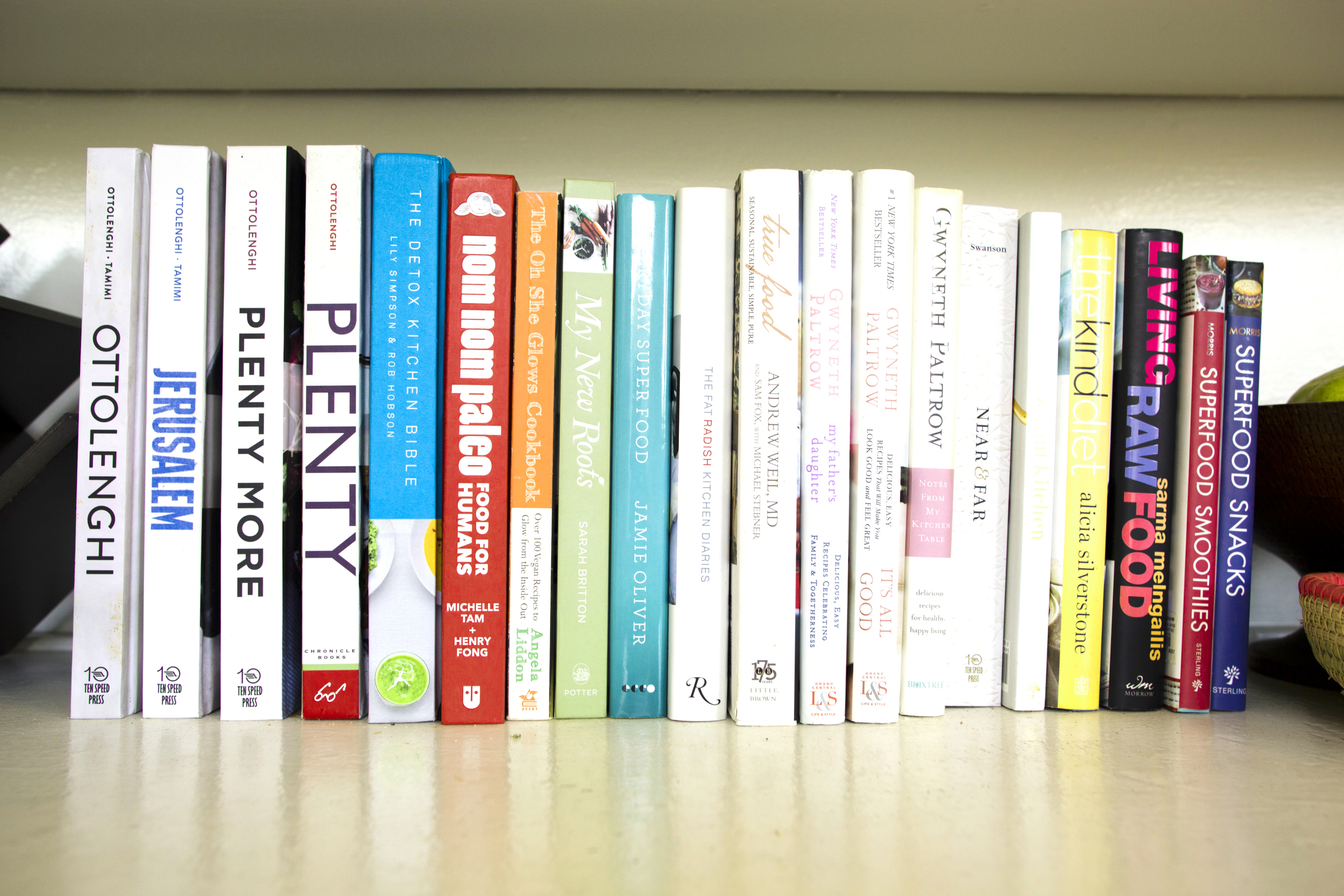
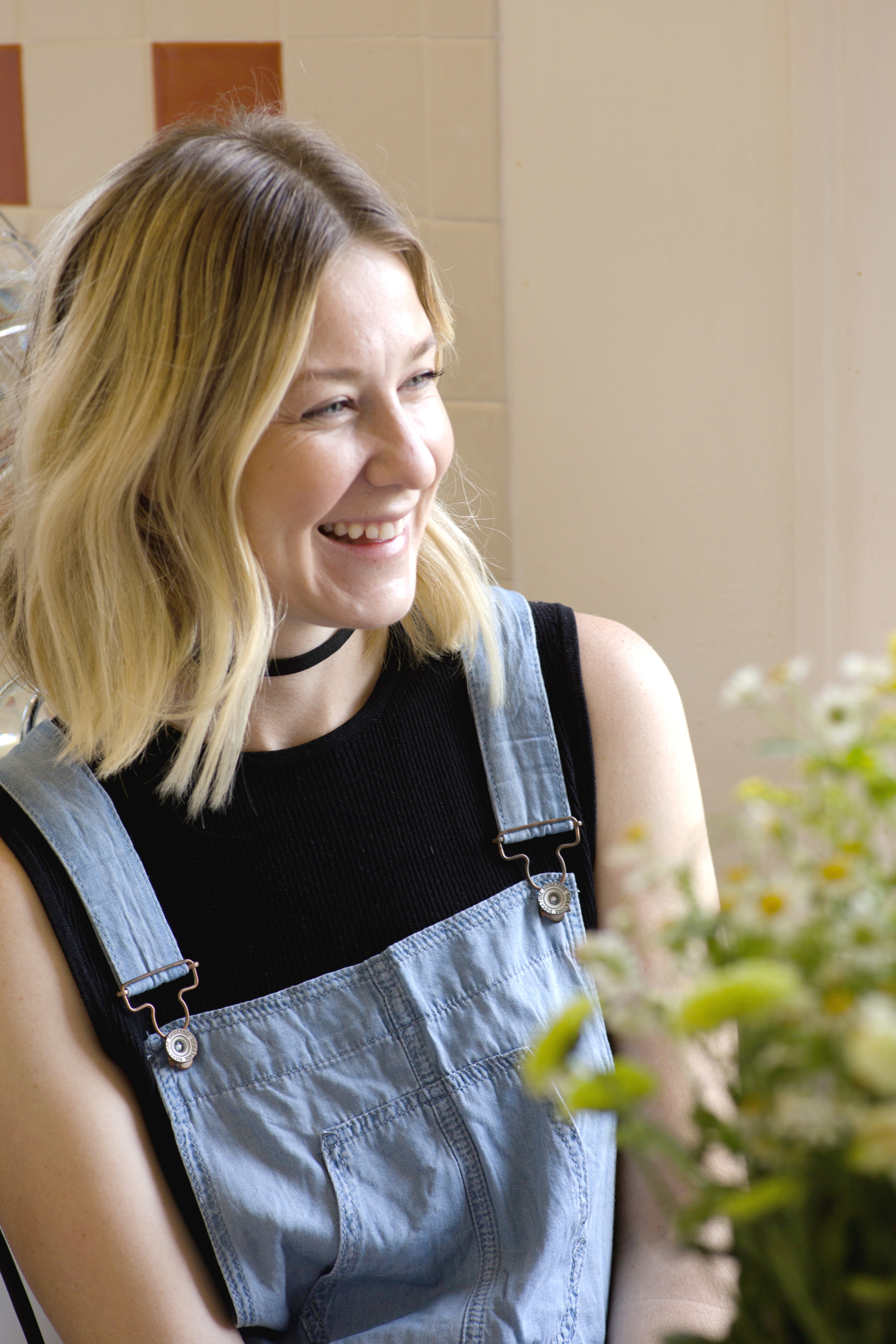
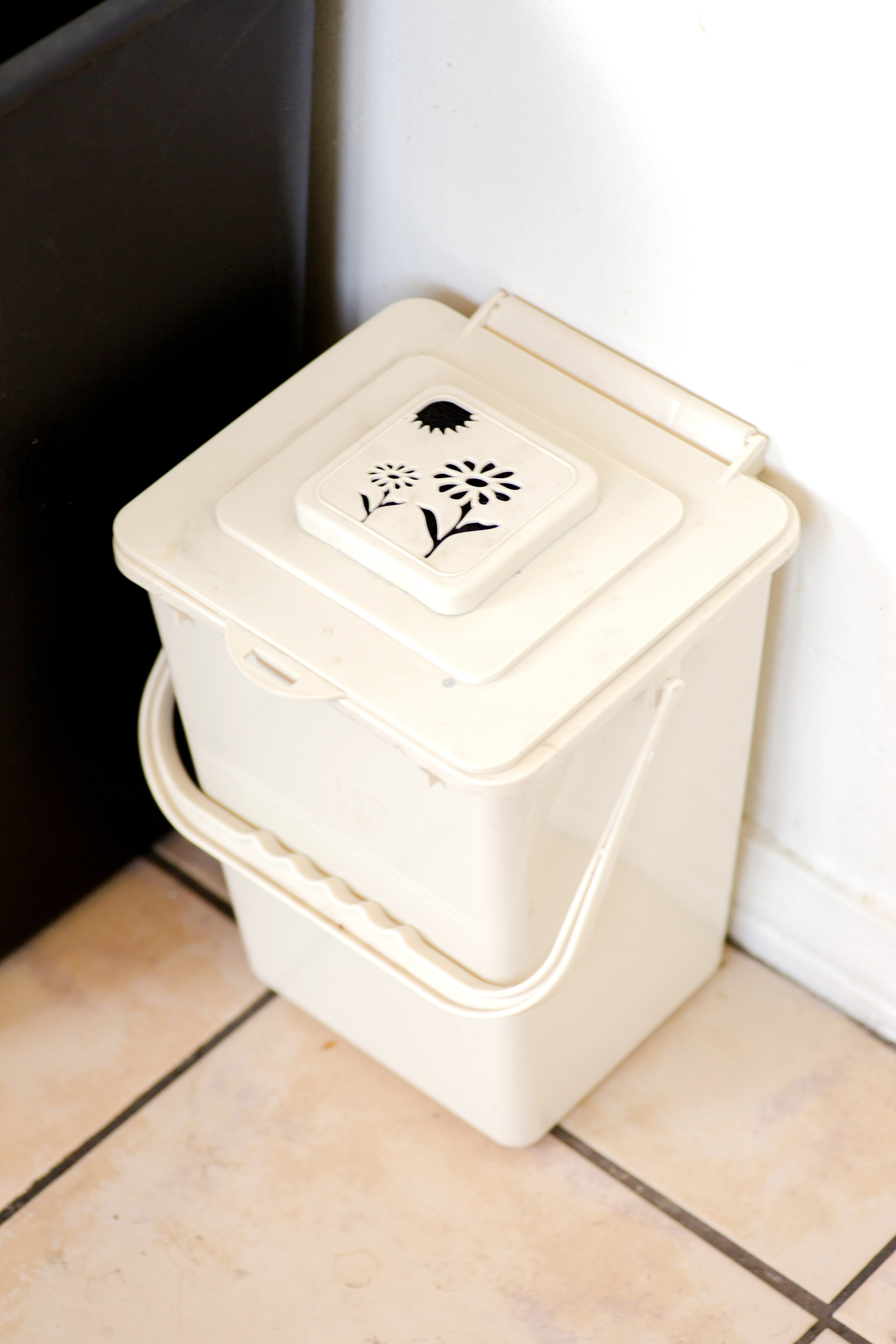
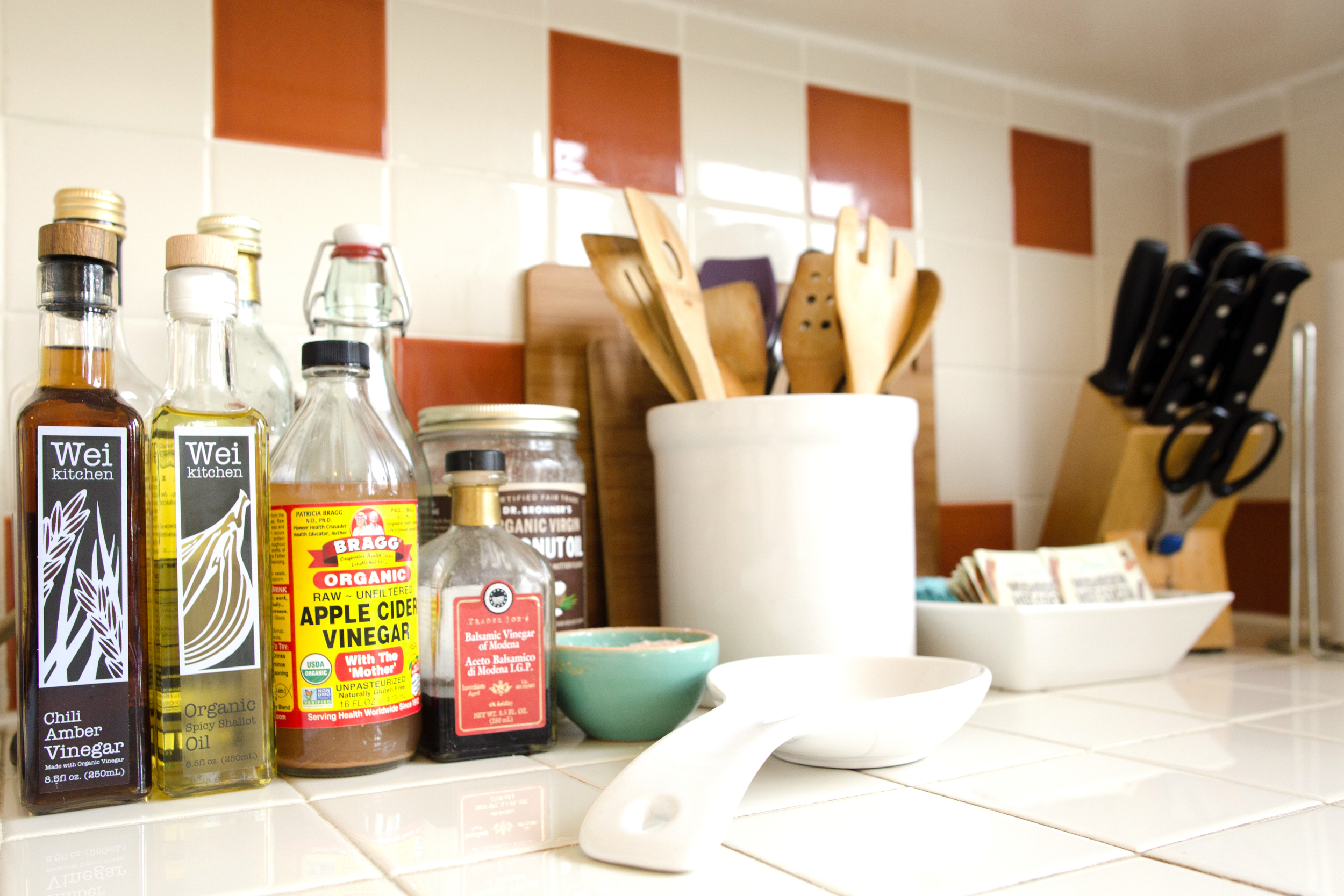
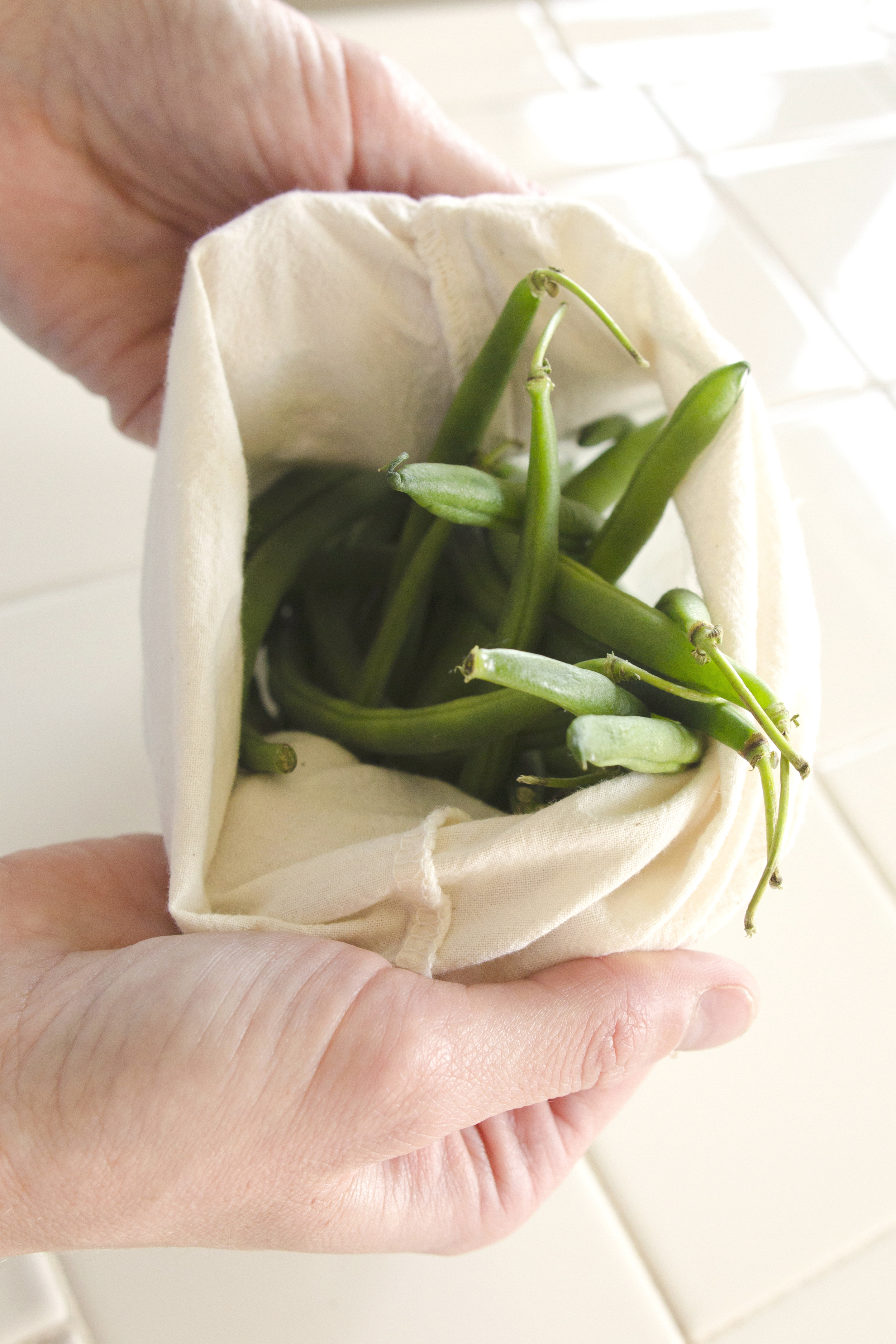
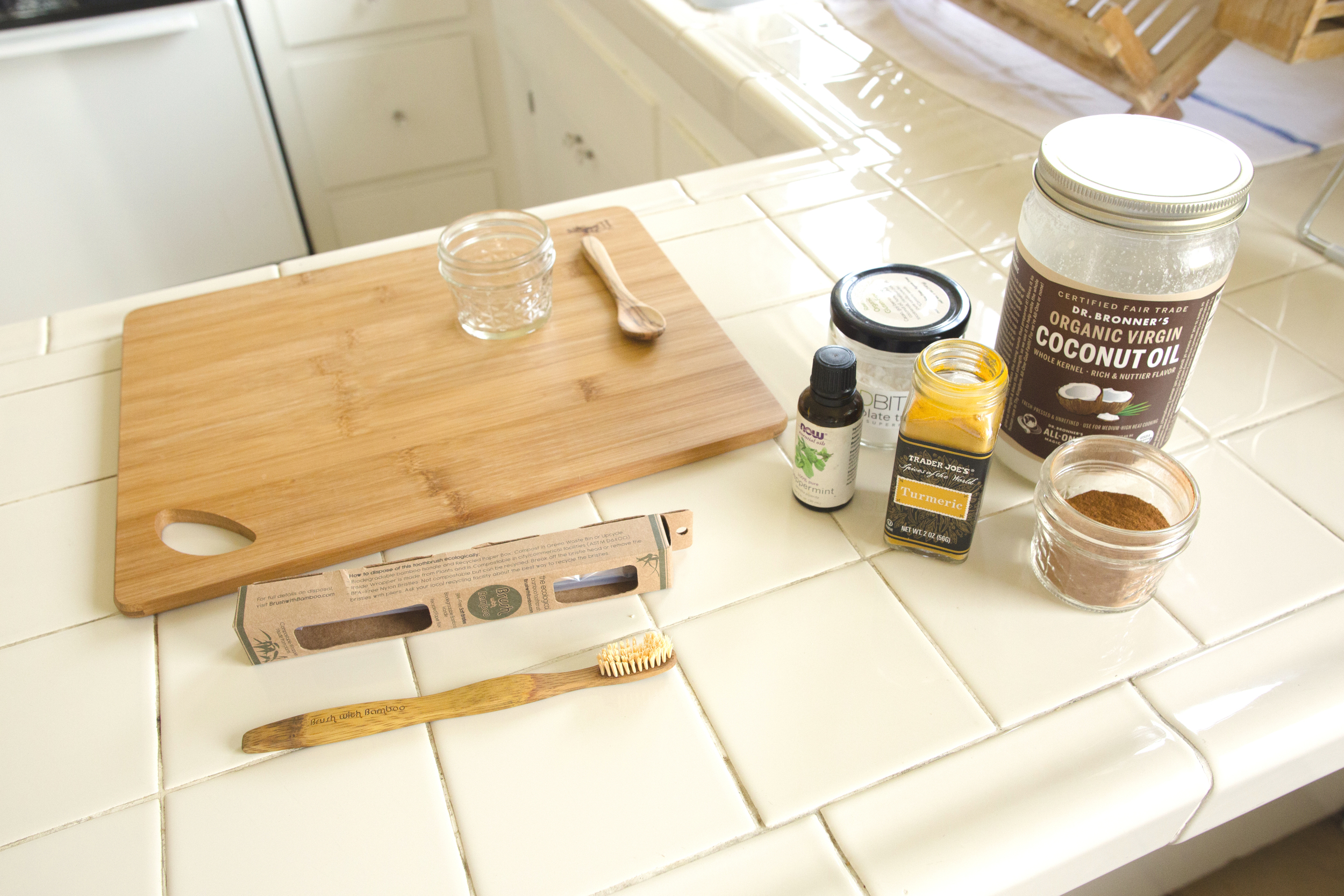
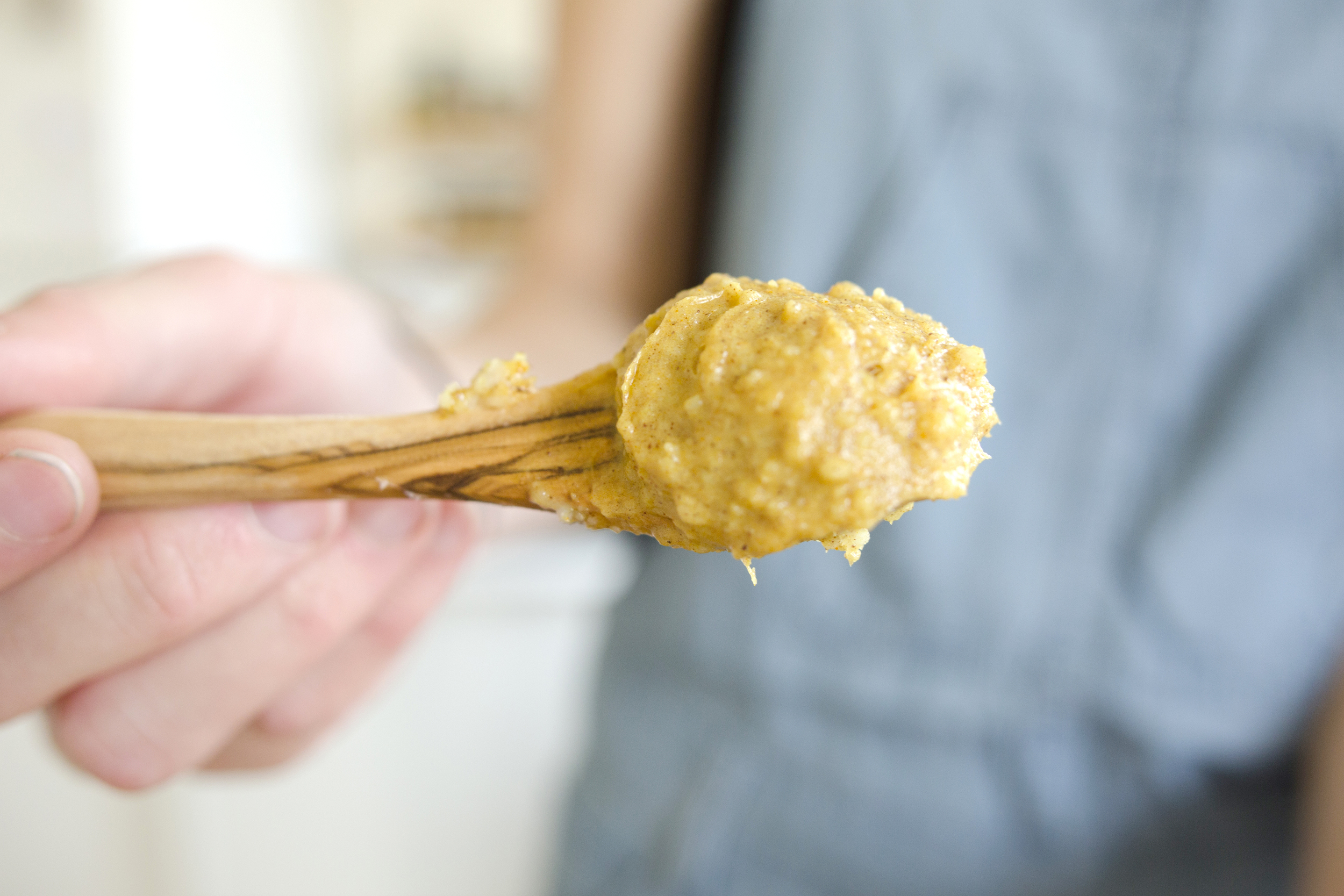
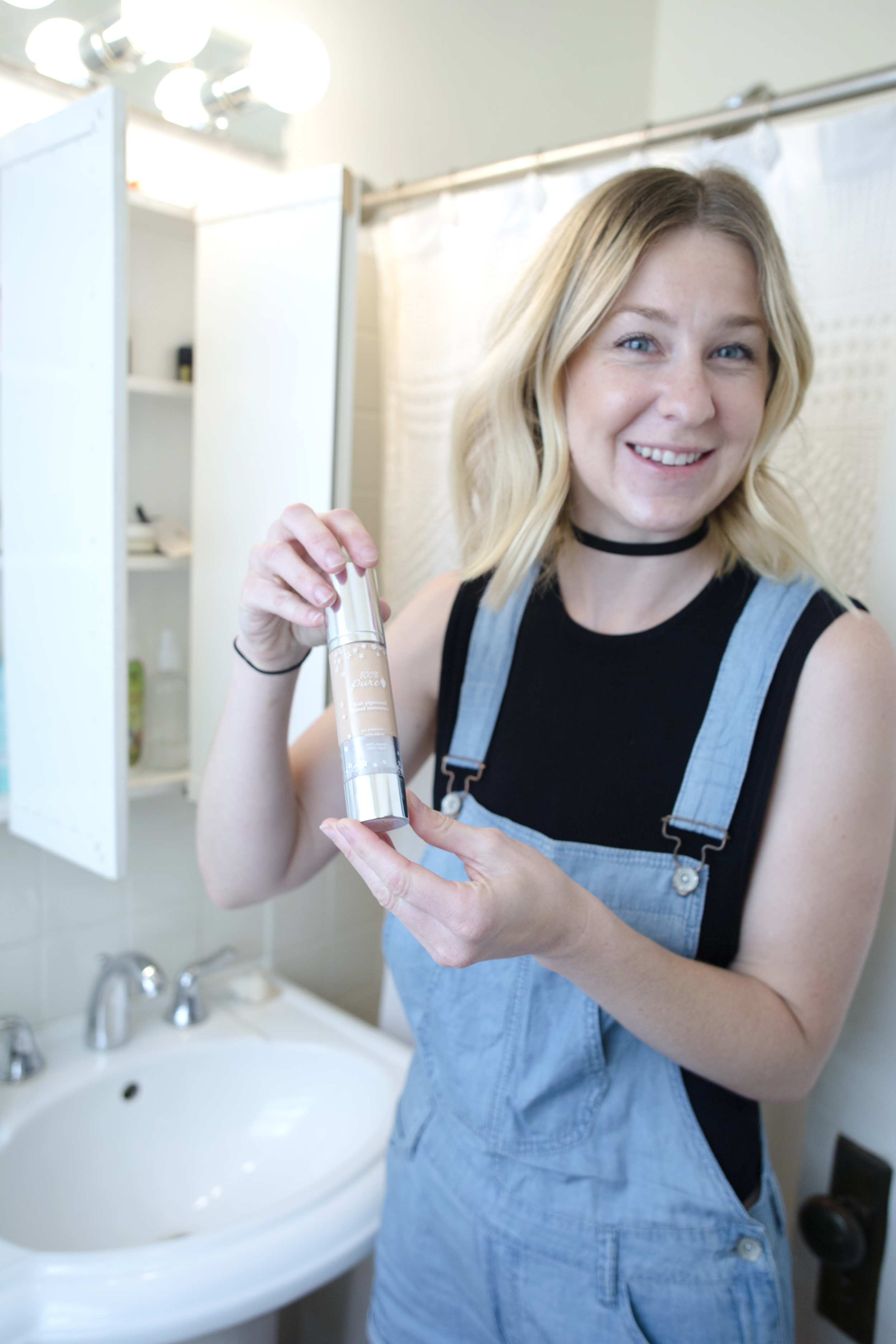
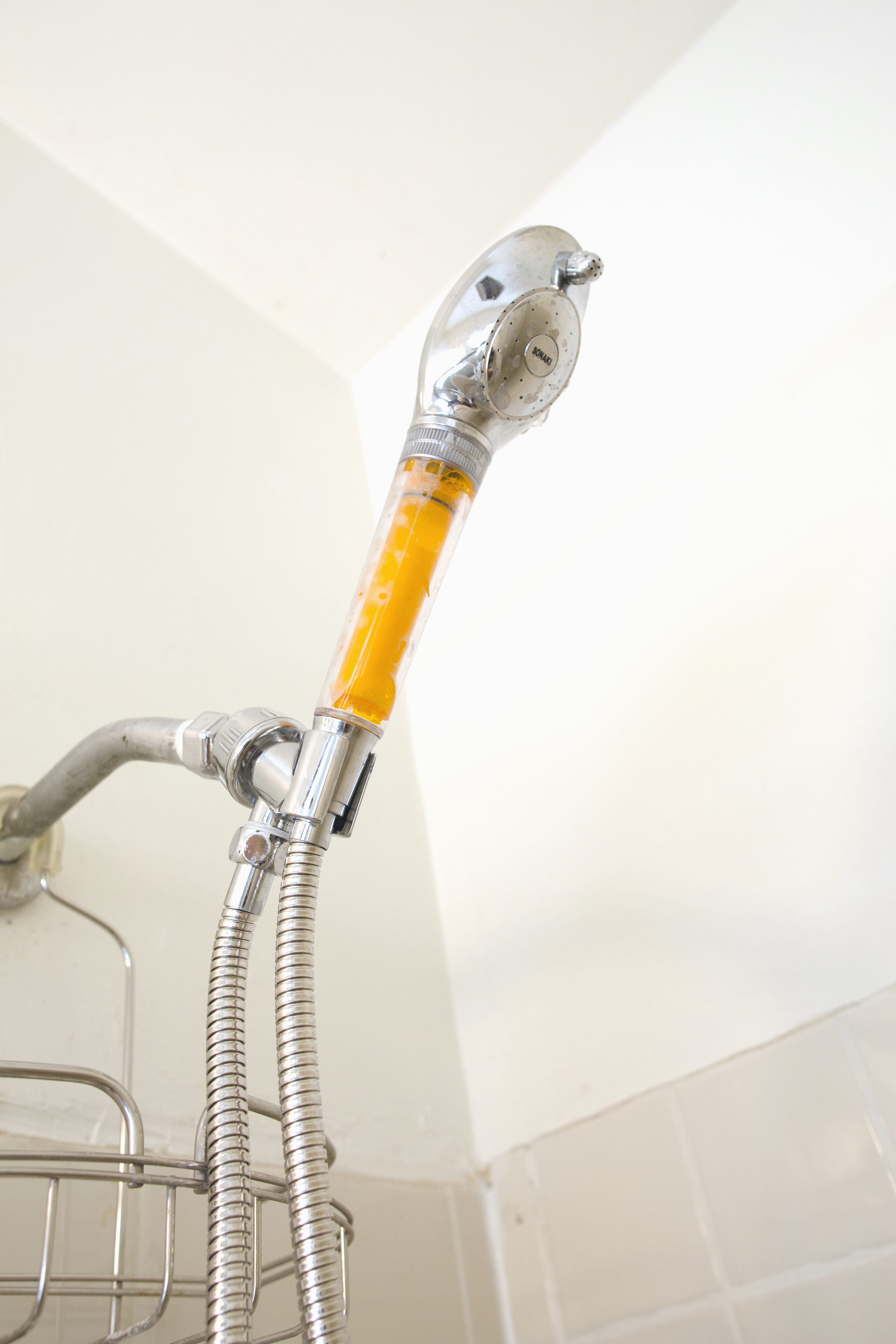
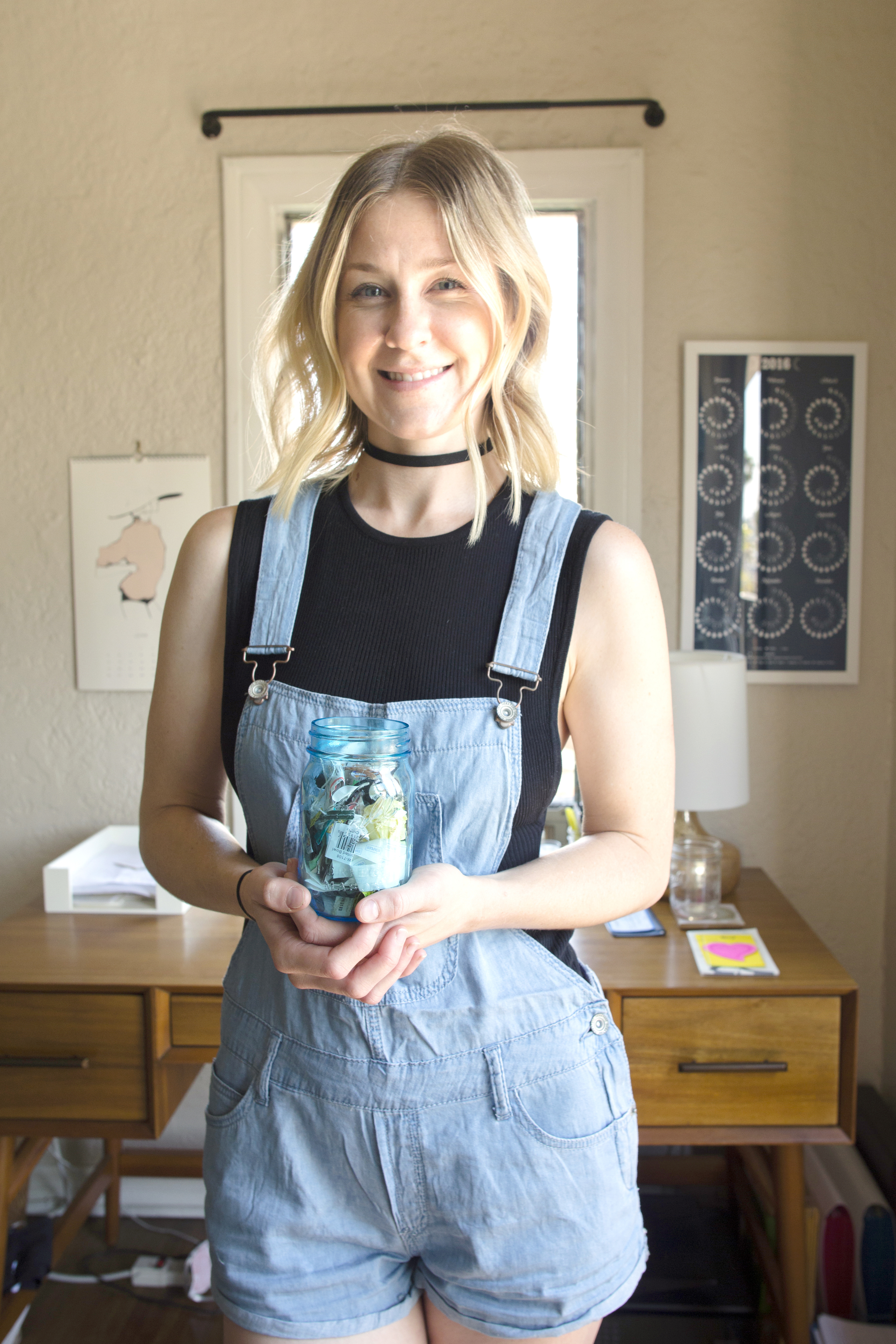
More from our blog:
Kore Kitchen Founder Explains Why She'll Always Be a Small Business
More money, more problems.
We’re making zero waste toothpaste in the kitchen of Meryl Pritchard of Kore Kitchen. She’s using an olive wood spoon made from branches; no trees were cut down in the name of the spoon. She uses aloe instead of Bandaids. Her water jug is filled with spring water a friend delivers. Even her TP is made with wheat straw and requires no deforestation.
“Why would we cut down trees so we can wipe our butts?” she asks me as she mixes the concoction of coconut oil, baking soda, turmeric, peppermint, and cinnamon. She scoops it into a glass jar for me to take home.
“The turmeric makes the toothbrush orange,” she tells me, “so don’t get weirded out.”
What’s weird is how little I know about recycling; a blue bin is hardly a perfect solution. “Less than 10 percent of plastic that gets thrown in blue bins is recycled,” she explains. The reasons for this are multifold: people don't sort, rinse, or really know what can and cannot be recycled.
[Unfun fact: In Los Angeles alone nearly 10 tons of plastic fragments-- think parts of plastic bags, straws, and soda bottles-- are carried into the Pacific Ocean, every day.]
Meryl hasn’t always been about that zero waste lifestyle. For a minute she was about that life. In her early twenties she was working for a well-known Hollywood celebrity stylist. “We’d spend days picking dresses, fitting these beautiful women, and then they’d get torn to pieces in the press.” It made her feel terrible about herself and her body. “At the end of the day,” she tells me, “I’d think, if people are saying this gorgeous woman looks terrible, how am I supposed to feel about myself?” It lead her down a dark road rife with body image issues: “I was trying every fad diet out there, not eating,” she says. “Feeling bad in your own skin is the single worst feeling.”
[Define it: Zero Waste is a philosophy that encourages the redesign of resource life cycles so that all products are reused. No trash is sent to landfills or incinerators.]
“Feeling bad in your own skin is the single worst feeling."
Tweet this.
But then she came across a book, “The Kind Diet,” by Alicia Silverstone. Meryl says she had so many ah-ha moments while reading, from coming to understand aspects of the food industry to what she was putting in her body, she knew it was time for a change. She emailed “every single holistic nutritionist in LA who had a website and seemed legit,” and was surprised when they all responded nicely. “I was so used to dealing with people not getting back to me or being nice,” she says in reference to her styling career, “that the energy immediately felt different and promising.”
She began working with a holistic nutritionist who let her sit in on all client sessions. “That’s when I saw healing first hand. I watched as people would cancel surgeries doctors told them were 100% necessary, and they’d go on to live life healthy.” With a little experience and a lot of enthusiasm she went back to school at 23. What she says is a “great age to make a shift.”
She attended The Institute for Integrative Nutrition, which teaches over 100 different dietary theories. As she was learning them, she’d try them. “You are the best doctor you can have— you live in your body, you feed it, you feel what doesn’t work.” The hitch was that Meryl had no idea how to cook. “I would go on Google or talk to Siri and ask really basic things like, ‘Siri, how do I cook a chicken breast?’ But it taught me that I can do anything. If you want to, you can figure it out.”
Kore Kitchen evolved naturally from this mindset. Kore is a “curated and nutritionally designed, meal delivery service and cleanse offering based in Los Angeles.” The intention is to help clients adapt a healthier lifestyle through simple nutritional philosophies: eat whole, organic foods, that are local and sustainably sourced.
With these Kore values in mind she began cooking for friends and delivering meals. “It would take me forever.” she says. “What would take a chef 20 minutes would take me 3 hours, but with food you’re transferring energy into the meals.”
“I was planning the menu, doing the shopping, the cooking, the delivery, and right after I finished I’d get up and do it all over again.”
She had a few clients during this time, but it was when friends and clients Donovan and Libby Leitch recommended her to Gwyneth Paltrow, the business took an unexpected turn. “I delivered her meals and heard nothing for a few months,” she says. Until Goop’s food editor reached out in December 2014, saying they loved her recipes and would she contribute a few to the site. She shared some recipes for Goop’s 2015 Detox Guide and the email floodgates opened.
“It was just me with one pan, in this kitchen, and I had all these orders.” She hunkered down, found a chef, Anna Lagura, whom she met through a happenstance convo with her neighbors across the hall, and signed a lease for a commercial kitchen space. Anna and Meryl now work out of L.A. Prep.
Of Anna, Meryl says, “She’s the person I’m most inspired by. I can send her a photo of any dish and she can make it with our philosophy. And she knows all of the clients and their food preferences by name and memory.” The meals Kore offers are organic and made from local ingredients whenever possible. They use no processed foods, no additives, no antibiotics or hormones, no preservatives, and no refined cooking oils or refined sugars. They are 100% gluten-free and dairy-free.
The business has been running for about a year and a half, and Meryl acknowledges the difficulties of being a self-funded, small business, but insists that she prefers it this way. "No funding required us to be more creative with our marketing," she says, adding "and I think we have a stronger connection to our clients."
“It’s difficult, but it’s also really fun. Business is like life, there shouldn’t be an end goal— you should be learning and growing all the time.”
"Business is like life, there shouldn’t be an end goal— you should be learning and growing all the time.”
Tweet this.
Growth for Kore however, does not include meal delivery services outside of Los Angeles. It is important to Meryl that they stick to their values of staying local. “We’re not a corporation, we’re a small business.”
“I don’t want to grow outside of LA. Local is really important to me because of the carbon footprint. With other meal delivery programs, you have to wonder, why are you in California eating food from North Carolina?”
It’s also why they have partnered with LA Compost, a local compost with four hubs, one of which is five minus from the commercial kitchen space. “All of the food that you’re eating, the scraps are going directly to the compost. Not trucked out of the city and brought back to be sold as soil.” They also now have a plot at the Elysian Valley Community Garden where Meryl is trying out her green thumb.
“We’re not trying to feed everybody,” she says, “we’re trying to feed our community.”
Click through the below gallery to see more of Meryl's zero waste lifestyle and see our toothpaste!











More from our blog:



